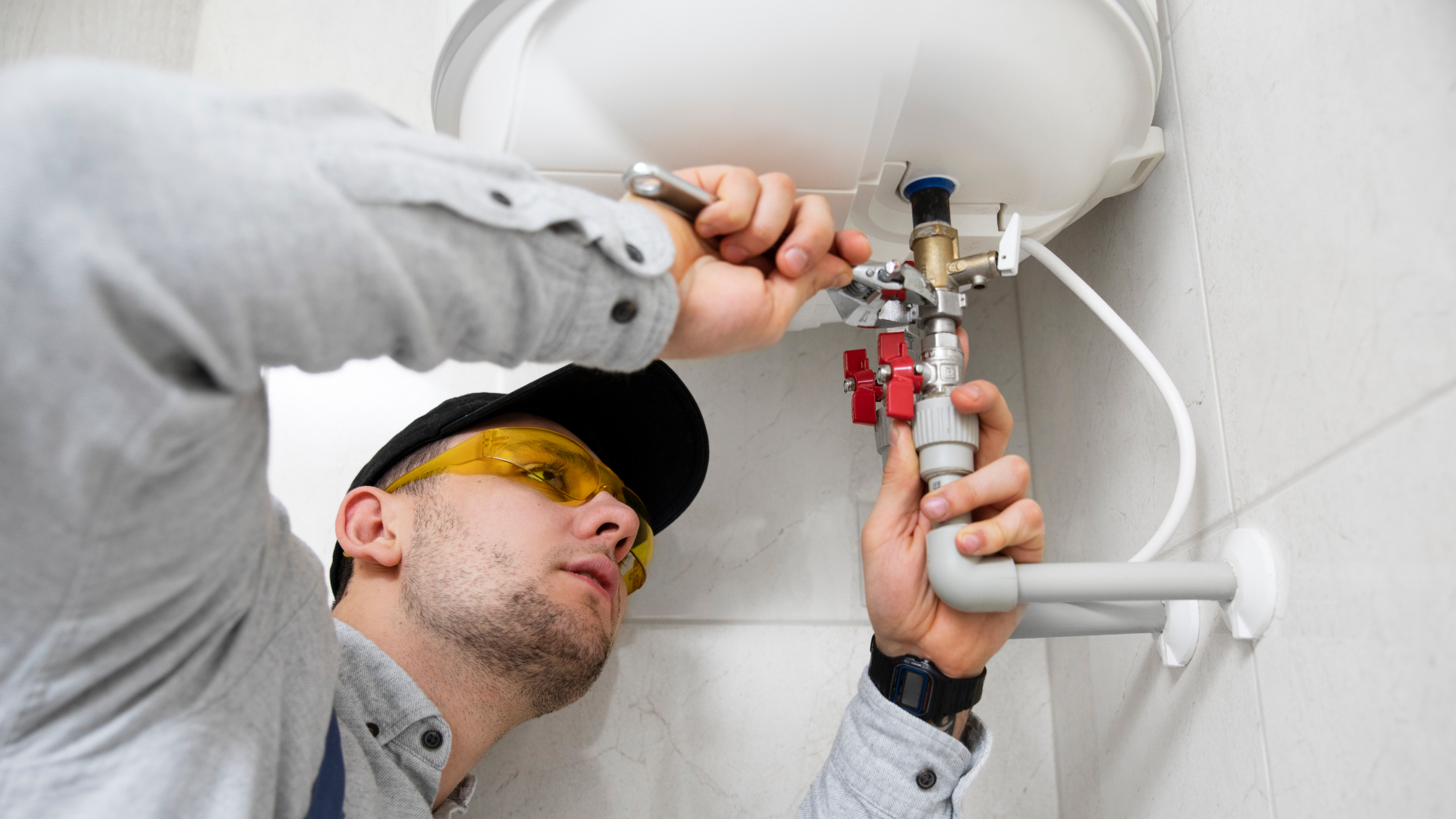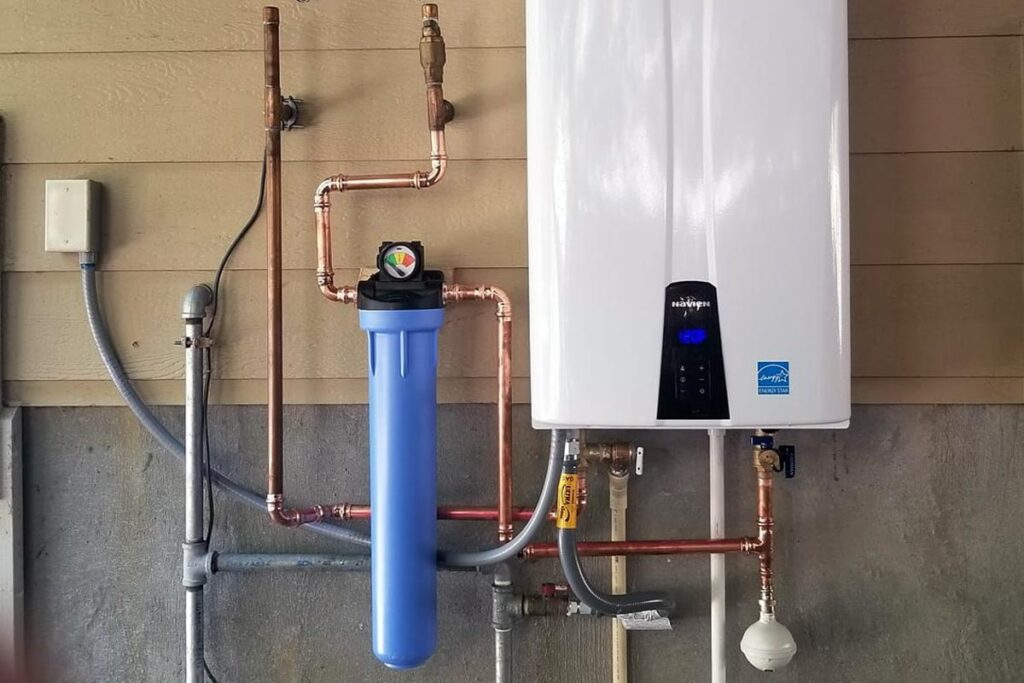As homeowners, we rely on our water heaters to provide us with a steady supply of hot water for daily tasks such as showering, washing dishes, and doing laundry. However, despite their importance, water heaters are often taken for granted until they suddenly stop working.
A faulty water heater can be a major inconvenience, causing disruptions to our daily routine and potentially costing us hundreds of dollars in repairs. This is why it is essential to be aware of the signs that indicate it may be time to consider switching out your heater. In this article, we will explore the reasons why a water heater can become faulty and when it may be necessary to replace it.
We will also provide valuable insights on how to replace or get a new heater that best fits your needs and budget. By understanding the importance of a reliable heater and being proactive in its maintenance, you can avoid unexpected breakdowns and ensure a continuous supply of hot water for your household. So, let’s dive in and discover why and when it may be necessary to consider switching out a faulty heater.
Cost-effective solution for water damage
One cost-effective solution for water damage caused by a faulty heater is to install a tankless heater. Traditional heaters with tanks can be prone to leaks and corrosion over time, leading to potential water damage in your home.
In contrast, tankless heaters heat water on demand, eliminating the need for a storage tank and reducing the risk of leaks. While the initial cost of a tankless heater may be higher, the long-term benefits outweigh the expense. These units are more energy-efficient, as they only heat water when it is needed, resulting in lower utility bills.
Additionally, tankless heaters have a longer lifespan than traditional models, reducing the need for frequent replacements and further saving you money. Considering the potential cost of water damage caused by a faulty heater, investing in a tankless heater is a smart and cost-effective solution.
Increased energy efficiency and savings
One of the primary reasons to consider water heater replacement Englewood FL or even switching out a faulty heater is to increase energy efficiency and realize significant savings. Older heaters, especially those that are not properly maintained or have reached the end of their lifespan, can be incredibly inefficient, leading to excessive energy consumption and higher utility bills. By upgrading to a newer, more energy-efficient model, homeowners can reduce their energy usage and save money in the long run.
Modern heaters are designed with advanced technologies that maximize energy efficiency, such as improved insulation, better heat retention, and energy-saving features like programmable timers and auto-shutoff valves.
These features allow the heater to operate more efficiently, reducing energy waste and lowering monthly utility costs. Additionally, some energy-efficient heaters may qualify for government rebates or incentives, providing homeowners with even more savings.
In addition to the immediate cost savings, switching out a faulty heater for a more energy-efficient model also contributes to long-term environmental benefits. By reducing energy consumption, homeowners can decrease their carbon footprint and help combat climate change. Making the switch to an energy-efficient heater is not only a smart financial decision but also a responsible choice for the planet.
Overall, increased energy efficiency and savings are compelling reasons to consider replacing a faulty heater. By investing in a more energy-efficient model, homeowners can lower their utility bills, reduce their environmental impact, and enjoy a continuous supply of hot water.
It is essential to be aware of the signs of a faulty heater and take proactive measures to ensure its proper maintenance. By staying ahead of potential issues and making a timely switch, homeowners can maximize their energy efficiency, increase their savings, and enjoy the benefits of a reliable and cost-effective water heating system.

Avoid potential health and safety hazards
One of the main reasons why it is crucial to consider switching out a faulty heater is to avoid potential health and safety hazards. A malfunctioning heater can pose various risks, including the potential for scalding injuries due to excessively hot water, as well as the possibility of carbon monoxide leaks.
If a heater is not functioning properly, it may overheat the water to dangerous temperatures, increasing the risk of burns and scalds, especially for children and elderly individuals. Additionally, a faulty heater can lead to carbon monoxide leaks, which can be extremely dangerous as this odorless and colorless gas can cause symptoms such as headaches, dizziness, nausea, and even death if inhaled in high concentrations.
Therefore, it is essential to be vigilant about the condition of your heater and take immediate action if any signs of malfunction arise to ensure the safety and well-being of yourself and your family.
Signs it’s time for replacement
When it comes to a faulty heater, there are several signs that indicate it may be time for a replacement. One of the most common signs is a lack of hot water or inconsistent water temperature. If you find yourself constantly adjusting the thermostat or waiting for long periods for hot water to flow, it is likely that your heater is no longer functioning efficiently.
Another sign to watch out for is an increase in energy bills. As heaters age, they become less energy-efficient, leading to higher energy consumption and subsequent spikes in utility bills. Additionally, if you notice any leaks or corrosion around your heater, it is a clear indication of damage and wear. These issues can lead to further complications, such as water damage to your property or even health hazards if there is a gas leak. By recognizing these signs and taking prompt action, you can avoid costly repairs and ensure the continuous operation of your heater.
Importance of professional installation and maintenance.
Ensuring that your heater is professionally installed and regularly maintained is crucial for its efficient and reliable operation. Professional installation by an experienced technician is important because it guarantees that the heater is correctly connected to the electrical or gas supply and properly vented to eliminate the risk of carbon monoxide leaks.
Additionally, a professional technician can accurately determine the appropriate size and type of heater for your household’s needs, ensuring optimal performance and energy efficiency.
Regular maintenance is equally vital to extend the lifespan of your heater and prevent costly repairs. A professional maintenance service includes inspecting the pressure relief valve, checking for leaks, flushing the tank to remove sediment buildup, and testing the thermostat and heating elements.
These preventive measures not only ensure that your heater continues to operate efficiently but also help identify any potential issues before they escalate into major problems.
Hence, By investing in professional installation and maintenance, you not only protect your investment in a new heater but also enjoy the peace of mind that comes with knowing that your hot water supply is reliable and safe.
A faulty heater can disrupt your daily routine and lead to unexpected expenses. Therefore, considering the importance of professional installation and maintenance is essential if you want to avoid the inconvenience and costs associated with a faulty heater.
To sum up, a faulty heater can be a major inconvenience and even a safety hazard in your home. It is important to regularly monitor and maintain your heater to avoid potential issues. However, if your heater does fail, it is crucial to consider switching it out as soon as possible in order to ensure the safety and comfort of your household.
By working with a professional and considering all factors, you can make the best decision for your home and family. Don’t hesitate to switch out a faulty heater and prioritize the well-being of your household.






